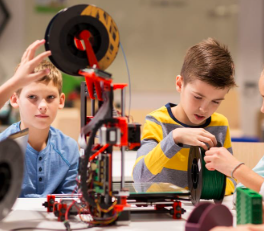Project-Based Learning (PBL) is transforming classrooms by making learning more dynamic, student-centered, and deeply engaging. Rather than relying on traditional lectures and worksheets, PBL empowers students to work on meaningful projects that reflect real-world problems. But how exactly does this approach boost engagement? Let’s explore.
Real-World Relevance Sparks Curiosity
When students see a connection between what they’re learning and real-life situations, their interest naturally increases. Project-Based Learning introduces tasks that are authentic and practical—designing eco-friendly buildings, researching local history, or developing community service ideas—which gives students a reason to care and take ownership of their work.
Active Participation Encourages Deeper Involvement
PBL shifts students from passive listeners to active participants. They research, collaborate, design, build, and present their work. This hands-on involvement gives them a stronger sense of purpose, which in turn boosts motivation and focus.
Collaboration Builds Social and Emotional Skills
Projects are often done in teams, encouraging students to communicate, resolve conflicts, and support one another. These collaborative experiences help build not only engagement but also essential life skills such as teamwork and empathy.
Choice and Voice Enhance Motivation
Allowing students to have a say in their projects—whether choosing the topic, the format, or the tools they use—makes learning more personal. This autonomy supports intrinsic motivation, encouraging students to put more energy and creativity into their work.
Visible Progress Keeps Students Invested
Unlike one-time tests or short assignments, projects unfold over time. As students move through each phase—from planning to final presentation—they see tangible progress. This ongoing development helps maintain interest and a sense of accomplishment.
Conclusion
Project-Based Learning isn’t just a teaching method; it’s an approach that fosters curiosity, collaboration, and real engagement. By giving students meaningful challenges and the opportunity to actively shape their learning, PBL creates a classroom environment where participation thrives and learning feels truly rewarding.














